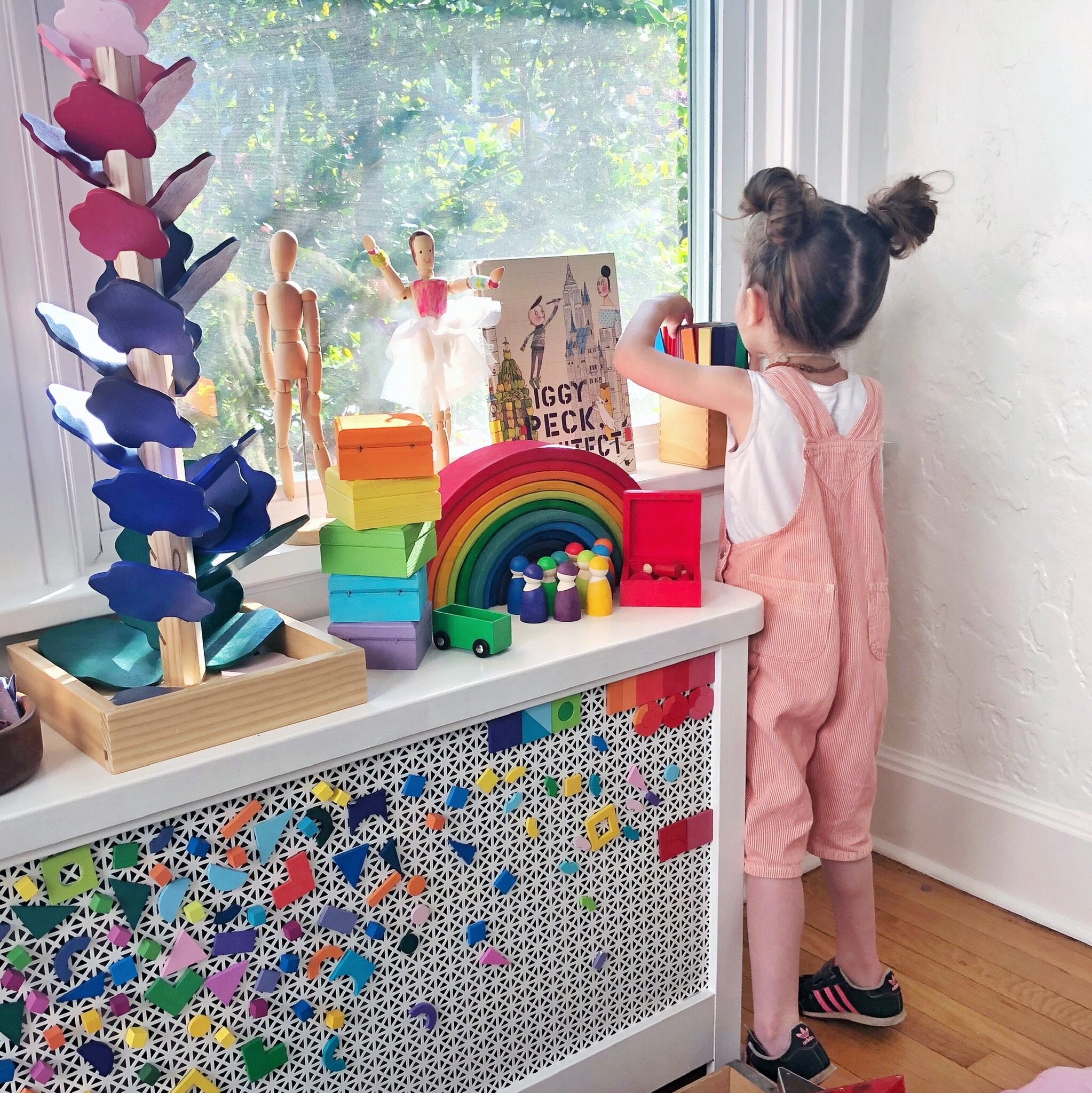One Phrase to Avoid Using if You Want to Raise Confident Kids
/
If you want to raise confident kids, stop saying this popular parenting phrase:
“You get what you get and you don’t get upset.”
I will never forget the first time I heard this phrase. I was in grad school, doing my student teaching. I sat on the floor in my corduroys and converse, surrounded by a circle of three year olds.
The kids cheered and squealed as the music teacher showed the kids all of her treasures. She started to pass them out and the kids started shouting, “I want the blue shaker egg!” “I want the pink maraca!”.
She settled the children down by loudly stating, “Children. You get what you get and you don’t get upset”. I watched as she praised a child who looked crestfallen, but didn’t open his mouth to express how he felt about his instrument.
I felt a pit tighten in the ball of my stomach. This felt wrong. I was a student-teacher not in a position to do anything other than wipe noses and observe. I stayed quiet, but the feeling never went away. I vowed never to teach that phrase in my own classroom.
How to Raise Confident Kids that Trust Their Instincts
Look at this from a child’s perspective. Using language similar to this phrase sends children the message that they shouldn’t ask for what they want. It’s telling them to stuff their feelings and accept things as they come.
Give them the opportunity to say, “I am upset. I really wanted the blue balloon and I got the red shaky egg instead”.
Stopping your child from expressing their emotions sends the message that their feelings are wrong and that you as their parent cannot handle their feelings. It also teaches them that they are supposed to hide how they really feel.
Your child is allowed to be sad, mad, angry, and disappointed. It’s okay for them to get upset.
Your child needs the opportunity to practice coping with not getting what they want in a supportive environment.
Now imagine your preschool-age child as a teen or tween. Do you want them to hide their feelings when they are upset or when something is bothering them? Or do you want them to be able to speak up for themselves and trust their emotions?
“I have a bad feeling about the way this guy is treating me. I am uncomfortable…”
You want to raise confident kids that are able to trust these inner feelings and instincts, not have the belief that they can’t get upset and think that they are overreacting.
How Allowing Meltdowns Can Raise Confident Kids
Allowing your child to fall apart and accepting their emotions when they don’t get what they want, does not mean that you have to give in to what they are wanting just because they are disappointed. Acknowledging what happened is enough.
This may sound like:
“You wanted the blue egg and you got the yellow one. I saw what happened.”
“You got the yellow egg when you wanted the blue one. Now you are grabbing the yellow one. I won’t let you grab.”
Take a moment to calm your child. After your child is calm, try getting them curious about what they are feeling!
“You got the yellow and wanted the blue. You tried to grab, but I wouldn’t let you. What could you have done instead? Any other ideas?”
Young kids will have great ideas (as long as they are regulated and calm) about what they could do differently and they will love realizing that they have autonomy in the process!
Use “No” as an Opportunity to Build Confidence
Hearing the word no is an opportunity for your child to learn coping skills and build confidence. Take these opportunities to teach your little one that they can be okay even when they don’t get what they want.
But how do you teach them that they can be okay without falling apart any time they are disappointed?
Practice. Try acting out not getting what you want and then ask your child what they think you should do. Kids want to be respected and part of the process. Teaching them these skills will help them realize that they can make choices and problem solve when things don’t go their way.
Check out this blog for some ideas of scenarios you can practice with your child.
If you have used the phrase “You get what you get and you don’t get upset” in the past, don't beat yourself up. This phrase comes from a place of good intention.
You can support your child’s big feelings without canceling them.
I hope you enjoyed this blog! If you want to keep up with more Workspace for Children content, follow along on Instagram by clicking HERE.
SUBSCRIBE TO MY NEWSLETTER
WANT TO SEE MORE BLOGS LIKE THIS ONE? GREAT! CHECK OUT THE POSTS BELOW!
CHECK OUT OUR EBOOKS!
THE PLAY PLAN
The Play Plan is an ebook containing play invitations that are easy to set up, inexpensive, and apply children of all ages. The 25 play prompts are divided into five categories and use items that you most likely already have at home. These play prompts consider children of all ages, all developmental stages, and all learning capabilities. Each prompt can be tailored to fit your unique child’s needs. Play is meant to be simple.
$28
QUIET TIME AND INDEPENDENT PLAY EBOOK
This downloadable ebook is your personal guide to Quiet Time and Independent Play. This ebook will teach you the basic steps to implementing a Quiet Time and Independent Play strategy that works. The guide teaches you my proven 5 step method for implementing a daily break without using screens. (Guide includes 5 bonus invitations to play.)
$27








Why Your Child's 'Difficult' Behavior Might Be Their Best Attempt to Communicate